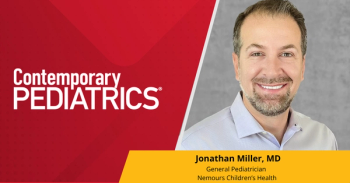
MMR Vaccine and Febrile Seizures: Benefit Tops Risk
Here's how to put a parent's concern to rest.
By definition, febrile seizures occur in the 3-month to 5-year age range. In the United States, the rate is thought to be between 2% and 5%. Interestingly, different rates have been noted in other countries. The rate in Western Europe is similar to that in the US. In Japan, it is 8.8%; Hong Kong, 0.35%, and in India, between 5% and 10%. Genetics may account for some of this variation. While the exact mode of inheritance is unclear, febrile seizures clearly run in families. If a sibling has had a febrile seizure, the risk for other siblings rises to 10%. If a sibling and a parent both have had febrile seizures, the risk increases to 50% for a child in that family.
Most providers administer the MMR vaccine at the 12-month visit. Unlike the inactivated vaccines such as the pneumococcal and Hib vaccines that can produce fever in the first 48 hours following immunization, fever from the MMR inoculation tends to occur about a week after the shot is given.
Let's check your working knowledge of febrile seizures and the measles vaccines with a short scenario.
Mom is in your office with her son for his 12-month well child exam. In discussing the MMR vaccine with mom you mention that while about 5% to 15% of children do develop a fever 6 to 12 days after receipt of the MMR vaccine:
A. there is no increased risk of febrile seizures
B. febrile seizures are rare, occurring in approximately 1 in 3,000 doses
C. febrile seizures are rare, occurring in about 1 in 30,000 doses
D. if there is no family history of febrile seizures then your child will not have one
Answer: B. febrile seizures are rare, occurring in approximately 1 in 3,000 doses
This is according to the
You tell mom that about 1 in 30 children will have a febrile seizure before age 5 years, usually caused by a viral illness, so getting the MMR only adds a miniscule extra risk. After you explain the benign, nevertheless frightening, nature of febrile seizures and the risks of measles (1 in 1000 children die and 1 in 1000 develop encephalitis/brain damage) mom consents to the vaccine and thanks you for your recommendation.
References:
Hambidge SJ, Newcomer SR, Narwaney KJ, et al. Timely versus delayed early childhood vaccination and seizures. Pediatrics. 2014;133:e1492-1499.
Newsletter
Access practical, evidence-based guidance to support better care for our youngest patients. Join our email list for the latest clinical updates.






